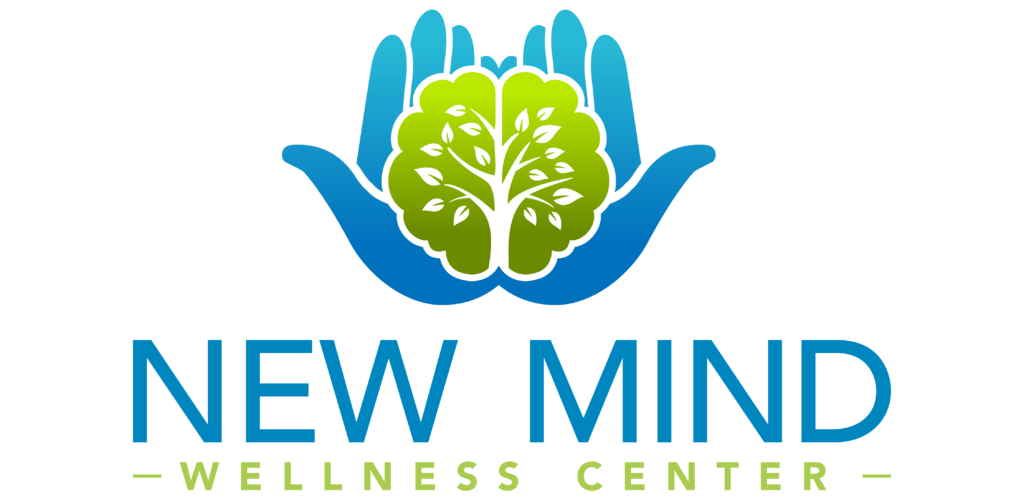Home » Mental Health Treatment in Philadelphia » Bipolar Disorder Treatment
Bipolar Disorder Treatment in Philadelphia

Home » Mental Health Treatment in Philadelphia » Bipolar Disorder Treatment
Bipolar Disorder Treatment in Philadelphia


Medically reviewed by Kelsi Lefever, Psychiatric Nurse Practitioner
January 30, 2025
Begin Mental Health Treatment in Philadelphia Today
At New Mind Wellness, we help individuals manage and overcome mental health challenges in Philadelphia. Our holistic treatment center specializes in providing structured outpatient treatment for individuals dealing with bipolar disorder. Our approach is personalized, evidence-based, and designed to empower you to lead a balanced and fulfilling life.
Contact us today for more information on mental health treatment in Philadelphia.
Understanding Bipolar Disorder
Bipolar disorder is a complex mental health condition characterized by significant mood swings, including emotional highs (mania or hypomania) and lows (depression). The journey to managing this mood disorder begins with understanding its nature, which can vary significantly among individuals. Our team at New Mind Wellness is equipped to guide you through the nuances of this condition, ensuring a compassionate and comprehensive treatment plan.
Recommended: Understanding How A Person With Bipolar Thinks
How Do I Know I'm a Candidate for Bipolar Treatment in Philadelphia?
If you find yourself experiencing extreme mood swings that disrupt your daily life, relationships, and work, you might be a candidate for our bipolar disorder treatment program. Individuals who benefit from our services often face challenges in maintaining stability both emotionally and in their daily routines. Our Philadelphia-based team is here to provide a thorough assessment to determine the most effective approach for your unique needs.
Types of Bipolar Disorders
Bipolar disorder manifests in several forms, including:
- Bipolar I Disorder: Characterized by manic episodes lasting at least seven days or by manic symptoms that are so severe immediate hospital care is needed.
- Bipolar II Disorder: Defined by a pattern of depressive episodes and hypomanic episodes, but not the full-blown manic episodes typical of Bipolar I Disorder.
- Cyclothymic Disorder: A milder form involving numerous periods of hypomanic symptoms and periods of depressive symptoms lasting for at least two years (one year in children and adolescents).
Signs and Symptoms of Bipolar Disorder
Recognizing the signs of bipolar disorder is the first step towards seeking help.
Common symptoms include:
- During Manic Phases: Feelings of high energy, reduced need for sleep, loss of touch with reality.
- During Depressive Phases: Feelings of deep sadness, hopelessness, sleep issues, and a lack of interest in activities once enjoyed.
Begin Bipolar Disorder Treatment Today
New Mind Wellness is a leader in the provision of mental health treatment in Pennsylvania. If you or a loved one are struggling with mental illness, reach out to us today or verify your insurance now.
What to Expect at Our Bipolar Disorder Treatment in Philadelphia
Bipolar disorder treatment can be provided through various levels of care, including Partial Hospitalization Programs (PHP) and Intensive Outpatient Programs (IOP). Each level of care caters to different needs and intensities of treatment. Understanding what to expect from each can help patients and families make informed decisions about the appropriate level of care.
Here's What to Expect:
Duration and Intensity: PHP typically requires attendance for several hours per day, five to seven days a week. The program often runs for several weeks, depending on individual progress and needs.
Therapeutic Activities: Includes daily therapy sessions, which may involve individual therapy, group therapy, and family sessions. The focus is on stabilizing mood, managing medications, and developing coping strategies.
Medical Oversight: Patients receive regular psychiatric assessments to monitor and adjust medications. This close medical supervision ensures that treatment adjustments are made promptly as symptoms change.
Here's What to Expect:
Duration and Intensity: IOP typically involves attending treatment sessions for a few hours per day, three to four days a week. Programs are designed to fit around personal schedules to allow individuals to continue with their daily activities, such as work or school.
Therapeutic Activities: Includes both group and individual therapy sessions. The focus is on continuing to develop coping mechanisms, improving mood stability, and integrating learned skills into daily life.
Educational Components: Patients participate in psychoeducational groups where they learn more about bipolar disorder, medication management, and strategies for preventing relapse.
Peer Support: Group sessions provide a platform for peer support, which is vital for sharing experiences and strategies, reducing the feeling of isolation.

How is Bipolar Disorder Treated?
Treatment for bipolar disorder at New Mind Wellness involves a combination of medication management, psychotherapy, and lifestyle adjustments.
Psychiatry
- Medication Management: The cornerstone of bipolar disorder treatment often involves psychiatric medications such as mood stabilizers, antipsychotics, and antidepressants to control symptoms.
- Diagnostic Evaluation: Comprehensive psychiatric assessments to confirm the diagnosis of bipolar disorder and differentiate it from other psychiatric conditions.
- Regular Follow-ups: Ongoing appointments to monitor the effectiveness of medications and adjust dosages as necessary.
Individual Therapy
- Cognitive Behavioral Therapy (CBT): Helps patients identify and modify detrimental thought patterns and behaviors, aiming to manage symptoms more effectively.
- Psychoeducation: Teaches patients about the disorder, helping them to understand and manage their condition better.
- Interpersonal and Social Rhythm Therapy (IPSRT): Focuses on stabilizing daily rhythms such as sleeping, waking, and mealtimes, which can help to prevent mood shifts.
- Dialectical Behavior Therapy (DBT): A form of therapy that combines behavioral science with mindfulness principles to manage emotions and decrease relationship conflicts.
Group Therapy
- Support Groups: Peer-led or therapist-led sessions where individuals can share experiences, offer group support, and learn from each other in a safe environment.
- Skill-based Workshops: Groups focused on teaching specific skills for coping with bipolar disorder, such as stress management, resilience building, or mindfulness.
- Family Therapy Groups: Sessions that include family members to educate them about the disorder and teach ways to support their loved ones effectively.
Holistic Therapies
- Mindfulness and Meditation: Holistic techniques that promote relaxation and mental clarity, which can help manage stress and reduce the intensity of mood swings.
- Yoga and Physical Exercise: Activities that help improve mood, increase energy levels, and stabilize emotional fluctuations through physical movement.
- Nutritional Counseling: Guidance on diet choices that can support mental health, including the regulation of blood sugar levels and the intake of nutrients beneficial for brain health.
- Art Therapy: Utilizes creative processes like painting or drawing to help express emotions and reduce stress, which can be therapeutic for individuals with bipolar disorder.

